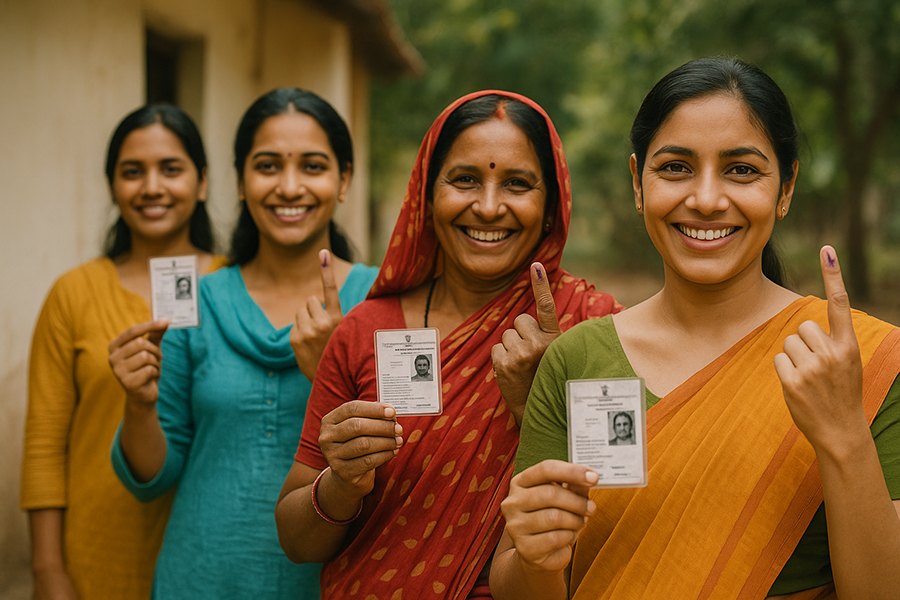I chose to drop science post 10th grade and study commerce.At 17, I went to Delhi University for graduation. I chose to finance my own education. I chose to study literature. I chose to work in an NGO. After working for 6 years, I chose to quit my job and study a program that was absolutely new in the sector. At an age when most girls get married, I chose not to. What underlies all of this and much more is the power of choice. However, having the privilege of making choices and pursuing what one wants to do is the privilege of just 1% youth in our country. This reality has been enough for me to have a burning desire to impact a social change.
I spent 12 days in Jaunpur district in East Uttar Pradesh for a rural district immersion program called ‘Realising India’. No amount of words can do justice to all that I experienced during this journey.
As much as it was about inspiration- from people and places, it also brought out indifference, discrimination (caste, class, and gender),and lack of care for fellow humans. Children are deprived of their right to education. People are surviving through unbelievably difficult living conditions, uncertainty, powerstructures, lack of voice and expression, ignorance and so much more. In the same community, there are people working endlessly to make their ends meet just so that their children can go to school. At the same place there are people who don’t send their children to school just because they thinkit’s not important. The so called higher caste community does not talk to the so called lower caste community, forget supporting and empowering them.
Interactions with people from different age, caste, socio-economic backgrounds made me re-realize my privileges and how I just take things for granted. During a conversation with a primary school principal I asked how soonthe authorities would respond if there was a problem in school? What if there was a short circuit?(I took this example as I had experienced this in the school I taught). She said the school has existed for past 4 years but there is no electricity in the school. I had nothing more to say.
I didn’t have to go to a community school where I would be made to learn books about my religion and follow it without a choice, even being, at times, oblivious to what it meant.I wasn’t indoctrinated into a blind belief system (even though there were definitely some staunch beliefs that I grew up through)andtoday I have the courage, education and support to choose what I want to believe in. Vandana doesn’t have this. My parents did make a lot of sacrifices so that I could get the best of education, because they understood the importance of education. That was my privilege.Shashidoesn’t have this privilege. He dropped out of school towork in the fields. These are just few examples of many other stories that would go unheard, unnoticed forever.
Just by the virtue of birth I have a life which is unimaginably different from children who deserve as much as I do.
At the end of the day, all I think about is my privilege and power of choice that brought me where I am today.
Should I feel happy that I am here or feel sad that I belong to less than 1% of India’s population who have all the basics in place which others don’t have?
I shudder to even think that:
I could be that girl who couldn’t study as much as she wanted.
I could be that girl who didn’t have basic sanitation facilities.
I could be one of those children studying in the school with no electricity.
I could be the one dropping out of school to work in the fields.
Because I am not, I believe that I owe my service to the betterment of these lives.




